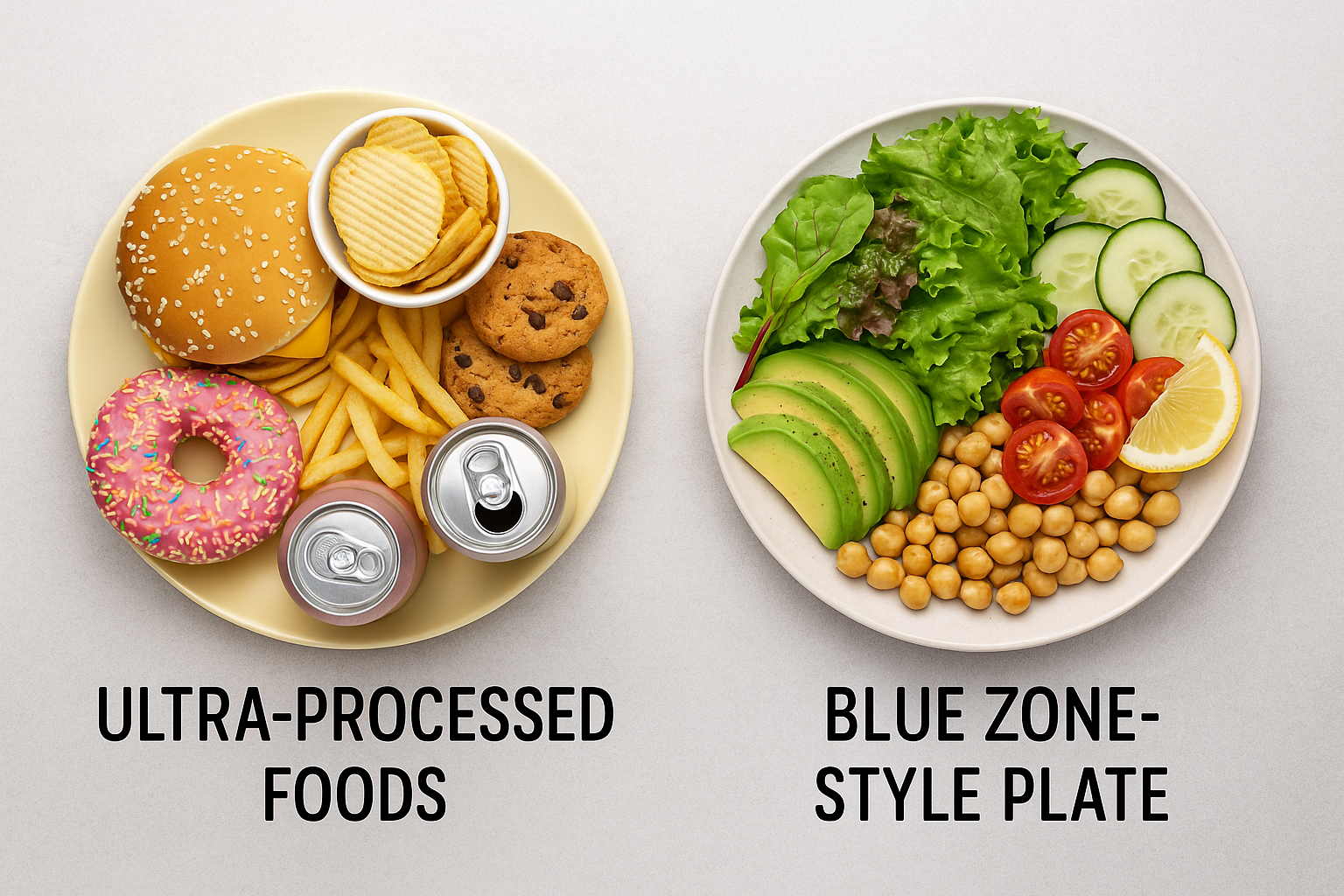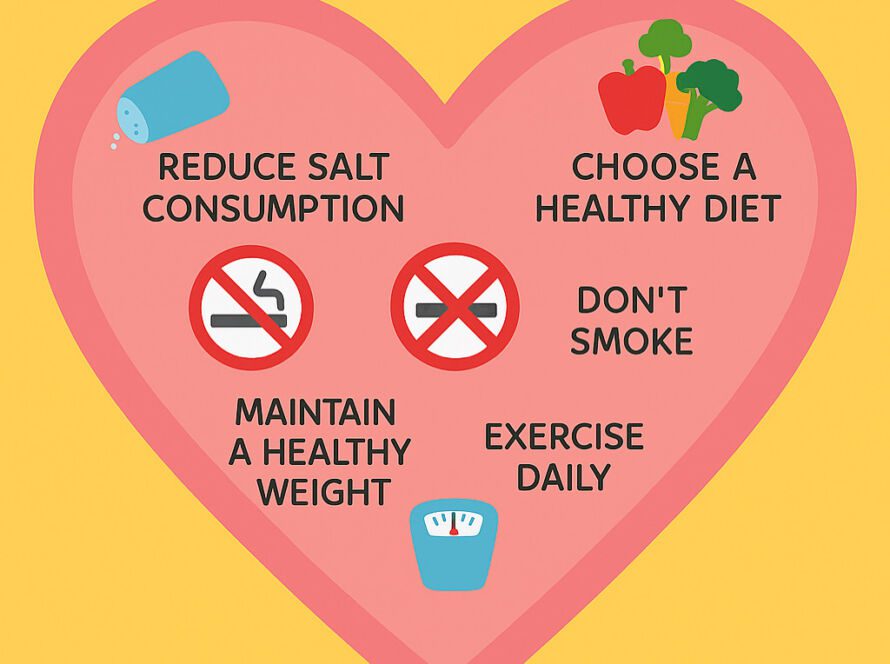Ultra-processed foods (UPFs) have become part of everyday life — cereals, crisps, packaged breads, ready meals, flavoured yoghurts, energy bars, and even foods marketed as “healthy.” But after Dr Chris Van Tulleken’s powerful interview on Good Morning Britain this morning, many families are wondering: are these foods harming us more than we think?
The short answer: yes — especially when they make up too much of our daily diet.
Why UPFs Affect Us All — Adults and Children Alike
UPFs are foods that have been industrially altered and contain ingredients you wouldn’t normally use at home — emulsifiers, stabilisers, artificial sweeteners, gums, modified starches, colourants, flavour enhancers, and preservatives.
Research continues to show a strong link between high UPF intake and:
- Weight gain and obesity
- Increased hunger and cravings
- Hormonal disruption
- Poor gut health
- Anxiety and low mood
- High cholesterol, high blood pressure, and metabolic disease
- Sleep disruption
- Increased risk of chronic illness
For children, the impact is even greater. Their bodies are still developing, and UPFs can affect appetite regulation, energy levels, behaviour, concentration, and long-term metabolic health.
Many parents notice changes in their children after highly processed foods: mood swings, irritability, low energy, trouble sleeping, and constant snacking. These are not character traits — they’re physiological responses.
So What Did Dr Chris Van Tulleken Say This Morning?
He highlighted that UPFs now make up more than half of the average British diet — and even more in children. The concern isn’t occasional treats; it’s that for many families, UPFs have become the everyday default.
He explained that UPFs are engineered to override hunger signals, encourage overeating, and interfere with the way our brains regulate appetite. Many of these foods digest too quickly, lead to blood sugar spikes, and leave us hungry shortly after eating.
This isn’t about judgement — it’s about awareness.
Small, Realistic Swaps to Reduce UPFs — for You and Your Family
You don’t need to overhaul your entire kitchen. Start here:
1. One swap per meal.
Whole yoghurt instead of flavoured.
Real fruit instead of fruit snacks.
Oats instead of boxed cereal.
2. Add protein and fibre.
These stabilise blood sugar and reduce cravings.
3. Cook once, eat twice.
Make extra portions for lunch the next day.
4. Read labels with one simple rule:
If the ingredient list contains things you wouldn’t cook with at home, it’s likely ultra-processed.
5. Focus on “real food first.”
Fresh ingredients, whole foods, simple meals. UPFs can be part of life — they just shouldn’t be the foundation.
You Can’t Fix Everything Overnight
And you don’t need to. Small, consistent steps make the biggest difference.
As Dr Van Tulleken emphasised, this is not about guilt, perfection, or fear — it’s about understanding how these foods affect our bodies and making empowered choices for ourselves and our families.
Warmly,
Milvia Pili
FNTP, Functional Nutritional Therapy Practitioner



